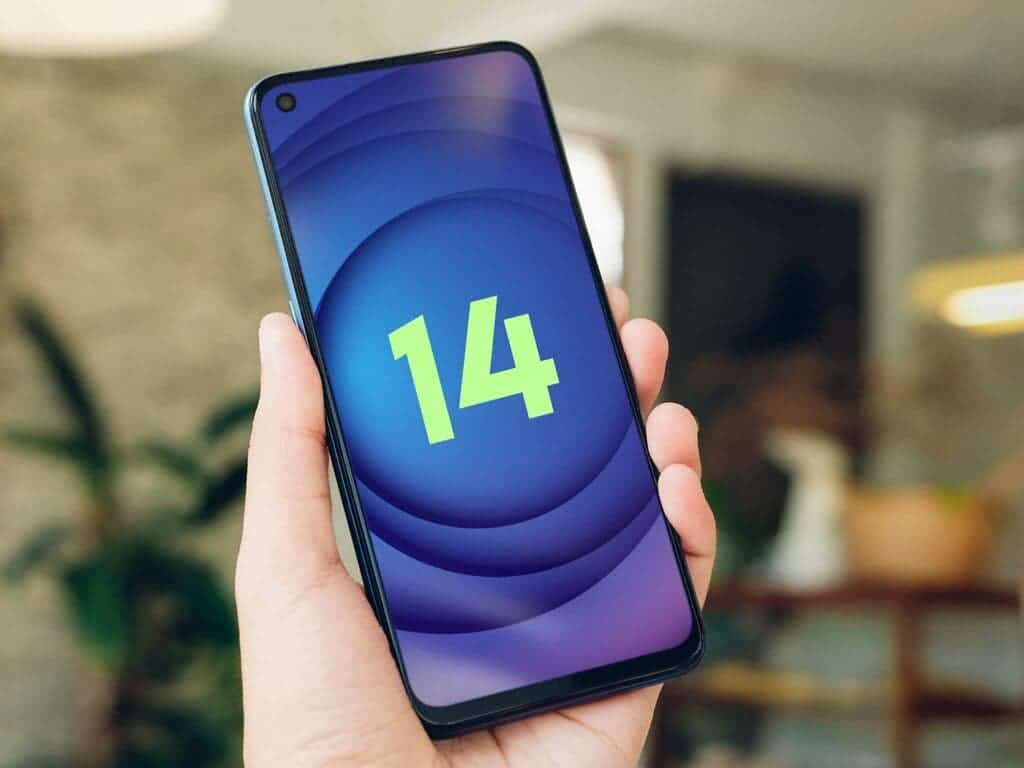The Upcoming Version Of Google’s Operating System, Android 14, Is Currently Under Development. The Company Currently Conducts Internal Tests Of The Android 13 Successor, And It Promises Significant Changes.
Android 14; Features And Release Time, Mobile phones are updated annually as part of regular updates and usually come on the market simultaneously as operating system upgrades.
One example of this strategy is Android, released yearly with the name of a dessert. The release time of Google’s Android 14 in 2023 means it has come to identify the new features of upgradable smartphones and their characteristics.

Which devices will get the Android 14 update first?
It is unknown whether smartphones, tablets, and other Android devices will be updated to version 14. But a few Pixel smartphones will get the update as scheduled:
- Google Pixel 4a.
- Google Pixel 5.
- Google Pixel 5a.
- Google Pixel 6.
- Google Pixel 6 Pro.
- Google Pixel 6a.
- Google Pixel 7.
- Google Pixel 7 Pro.
When will Android 14 be available?
Currently, neither the beta version nor the open version of this operating system is available for developers (Dev) as it is still under development by the company. However, analyzing Google’s usual strategy makes its update schedule clear.
The Dev Preview release, the first Google Pixel test upgrade (with the Pixel 5 and later), will be in February 2023.
Google’s first Android 14 beta won’t be released until Google I/O, the company’s biggest event. According to previous years, its exact date will not be known until May 2023.
The Dev version will be released in February, the Beta version in May, and the final version at the end of the summer, most likely in September.
The final and stable Android 14 will be released in late August or early September 2023, and the upside-down cake name is already attached to it. It has confirmed the name of Android 14. Google will officially name the system version Android 14, and Google will use this.
How to update to Android 14
Each manufacturer will publish a timeline for updating existing devices to Android 14 and how to do it. Generally, an update notification is shown on the mobile device when an update is available. After installing Android 14, searching for it manually through the system settings will also be possible.
Google Pixel smartphones will be the first phones to receive this upgrade. The Dev version is currently under review (and later with the Beta version). The updated system files will also be available on its website for Android developers.
New features in Android 14
Currently, there are only a few leaked features of this operating system. Compared to Android 13, this system will not have significant innovations or changes in settings, at least in appearance. Making substantial changes to a highly developed system with flawless performance is becoming less and less possible.
In Android 14, the navigation function has been removed, and the display of the previous screen returns from the edge of the screen when returning. This functionality was present in Android 13 developer options and will now be included as default in Android 14.
Google will abandon 32-bit support with its new operating system. It means that it will no longer support ancient programs. According to AOSP code information, ARMv9 kernels cannot run 32-bit applications. In fact, due to the modern chips in devices receiving Android 14, the system will only support 64-bit.
Android 14 requires developers to support the open-source AV1 codec at no cost. This codec promises better video playback quality with more accurate and adequate compression.
The satellite connection offered by Apple on the iPhone 14 and iPhone 14 Pro smartphones will be available with Android 14, and manufacturers can provide it on their devices. This feature allows communication when there is no cellular antenna or WiFi network.
Future Pixel phones will likely have satellite capabilities added by Google.
But whether other manufacturers will offer it and whether it is free or requires a membership is unknown. Apple has provided its activation in the new iPhone 14/14 Pro models with only two years of free emergency call service.
Like Apple’s HealthKit, Health Connect provides data access and sharing as an intermediary between various health and fitness apps. In addition to Google’s Fitbit and Google Fit, third-party platforms like Peloton, Tonal, Samsung Health, and MyFitnessPal support it.
Health Connect is a free beta software that can be downloaded from Google Play. But its implementation in Android 14 or later versions is not yet known. Its integration with Android is Google’s long-term goal.
Beyond the available information, Android 14 should focus on privacy and security to provide more control over user device permissions and various hardware and software components. Material You will continue to evolve, and color-matching changes will undoubtedly be offered on all devices.